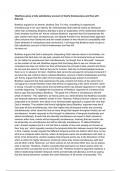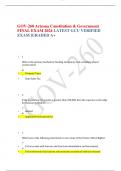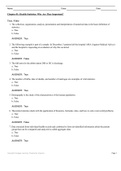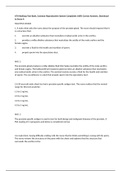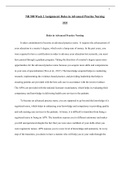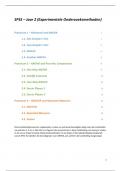Essay
'Boethius gives a fully satisfactory account of God's timelessness and free will.' Discuss 36/40 essay
- Course
- Institution
Essay titled ‘Boethius gives a fully satisfactory account of God's timelessness and free will’. Discuss which scored 36/40 (AO1 = 15/16 AO2 = 21/24) for A level RS OCR Contains various thinkers so can also be picked apart and reorganised to answer various other questions for the Nature or At...
[Show more]
